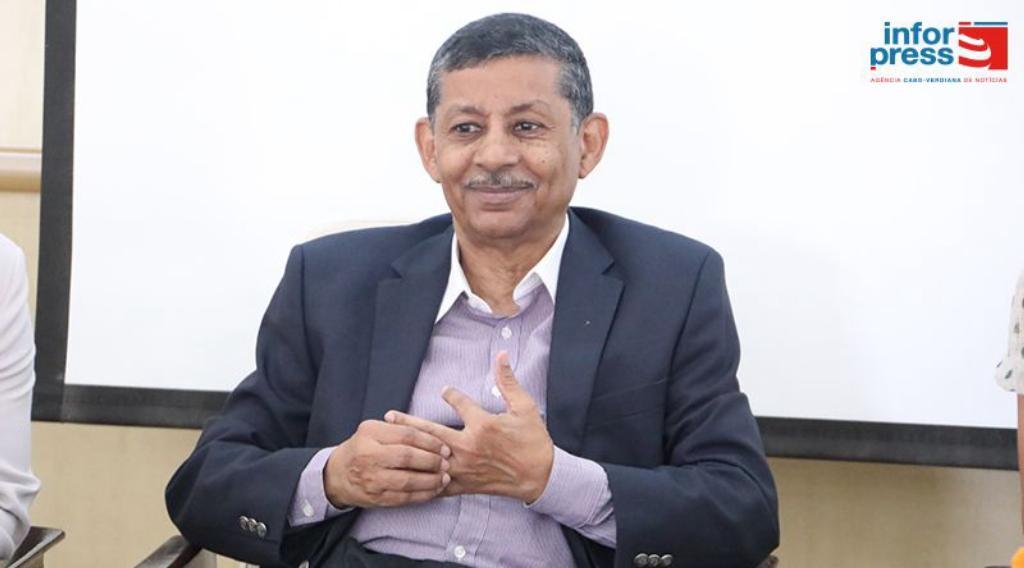Africa-Press – Cape verde. Júlio Ascensão Silva, former secretary-general of UNTC-CS, the largest Cape Verdean trade union, said today that, in these 50 years of “true trade unionism” in Cape Verde, there have been “clear gains” and also some constraints that need to be overcome.
“We have noticed that there has been significant progress, but there are some obstacles that need to be overcome”, pointed out the former SG of the National Union of Workers of Cape Verde – Central Sindical, highlighting that they inherited the unions that existed in colonial times, which were only in name, because “they did not, in fact, perform the function that unions should have”.
For Ascensão Silva, who today presides over the Institute for the Promotion of Social Dialogue and Trade Union Freedom (IPRODIAL), the actions of unions inherited from colonial times were “more focused on social and social security issues”.
The trade unions of shop workers and seafarers, according to him, had a Social Security Union Fund, “these union funds constituted the embryo of what is now the INPS [National Institute of Social Security]”.
“We inherited these unions that came from colonial times, but it was from April 1974, with the Carnation Revolution, as it became known in Portugal, which had an impact on the former Portuguese colonies, that, in fact, a new process began, here in Cape Verde, from a union point of view”, explained the former union leader, adding that it was at this time that the Union Action Group (GAS) appeared.
GAS was recognized as the only trade union entity in the country, which evolved into the Organizing Committee of Cape Verdean Trade Unions (COFCV), whose president was the late poet Oswaldo Osório.
The UNTC-CS emerged in 1978, during its first congress, in which Afonso Gomes was elected as the first secretary-general.
However, with the death of Afonso Gomes, Júlio Ascensão Silva would, by indication of his colleagues, temporarily assume the position of SG of the UNTC-CS, until the II Congress of the Central Sindical, in 1992. He was reelected in 2010 and, in 2016, ceased his duties as secretary-general, leaving active union life.
Over the 50 years of Cape Verdean trade unionism, Júlio Ascensão Silva highlights “important achievements”, namely in the field of labor legislation, social security and union rights.
“UNTC-CS made a major contribution to the development of structural laws in the country,” he highlighted, citing labor legislation as an example.
The union funds, according to him, ended up giving rise to the former Institute of Insurance and Social Security (ISPS), which later gave way to the current INPS.
The same source also highlighted the right to strike as one of the achievements of Cape Verdean workers, which, in their words, “happened during the First Republic, therefore, during the single-party regime”.
“And this recognition [of the strike] came as a result of a series of struggles that took place here in Cape Verde, of which I would highlight the one by seafarers and the threat of a strike by CTT (Cape Verde Post Office) workers, at the time, at a national level”, revealed Ascensão Silva, highlighting the strike by workers at the São Vicente Shipyards, which had an impact not only in the country, but also internationally.
He emphasized that the aforementioned strikes were carried out at a time when this right was not yet recognized in the archipelago.
“Many people said that the strike was prohibited because there was an omission in the law. Neither the Constitution nor the country’s ordinary law, in fact, had a clear position regarding the strike,” he pointed out, admitting that the UNTC-CS “dared and moved forward” with the strike and, as a first consequence, the Government was forced, at the time, to recognize this right for workers.
Hence, it is understood that the UNTC-CS also contributed to the process of opening the country to democracy, political pluralism and trade union pluralism.
The creation of the minimum wage, unemployment insurance and the participation of unions in the management of INPS were other “important achievements” highlighted by Júlio Ascensão Silva.
While he was in charge of the largest Cape Verdean trade union, he welcomed the fact that training deserved “special attention”.
He added that the training was and continues to be “structuring” from the point of view of the development of trade unionism in Cape Verde.
“We trained many union cadres, both here in the country and abroad, through the cooperation we had, at the time, with several organizations from different countries”, stated the president of IPRODIAL, adding that the concern was always to transmit to activists and workers “what their rights are, but also their duties”.
In his view, one of the functions that unions should assume is to contribute to increasing the productivity of companies.
The increase in productivity, praised Ascensão Silva, depends on the notion that workers mustm be aware that “they are part of the company and that its success is also their success”.
It was from this perspective, he explained, that UNTC-CS saw training as being “fundamental”.
“Rights and duties are two things that must go hand in hand,” said the Inforpress source.
Collective bargaining in Cape Verde was one of the concerns that plagued the former trade unionist.
“We are very behind, it is an area in which, in fact, I recognize this, not much progress has been made here in Cape Verde”, he lamented, regarding collective labor negotiations.
In terms of workers’ rights and duties, according to Júlio Ascensão Silva, this “involves collective bargaining and social dialogue”.
“Despite all the effort and training we have undertaken in this area, we are far from where we should be in terms of collective bargaining here in Cape Verde,” lamented Ascensão Silva.
“We will have to promote literacy in terms of social dialogue and trade union freedom, so that people can know that they do, in fact, have rights, but they also have duties,” he concluded.
For More News And Analysis About Cape verde Follow Africa-Press






